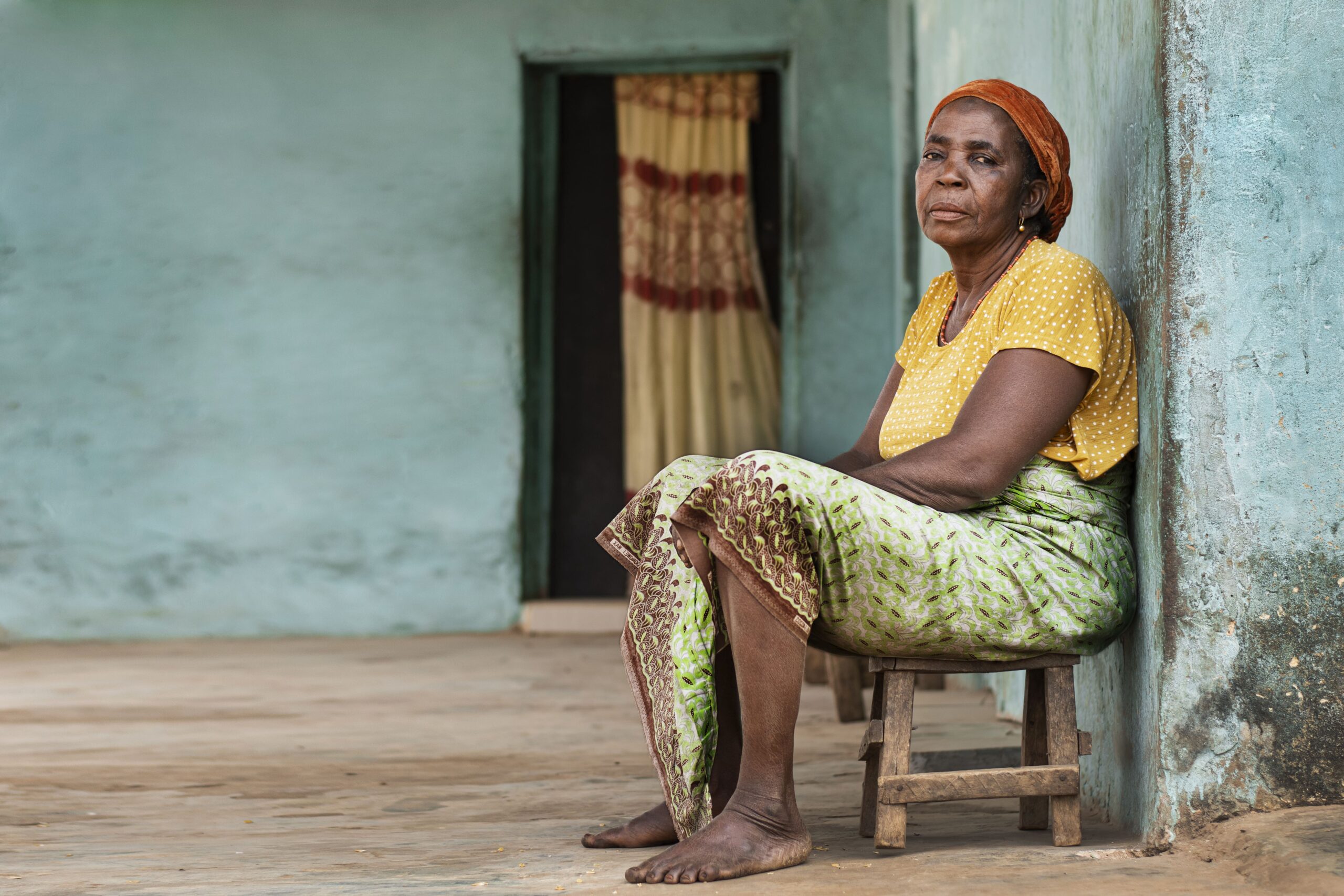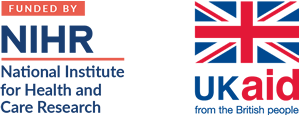Our Approach
Methodology
COMPLUS undertakes a range of study activities including landscape analysis, in-depth qualitative research, and tracking of selected indicators from available secondary data, to investigate the implementation of the intervention across the three country contexts emerging from the research, and their linkages with outcomes. It employs use of ‘tracers’, which are specific service delivery areas of importance that can be used as examples to guide and allow investigators to focus their inquiry on tangible outcomes. We are using Tuberculosis and Non-Communicable diseases (diabetes) as tracers to study different types of aspects of utilisation and responsiveness of health services.
Research Framework
COMPLUS applies actor-centred implementation analysis and complex adaptive systems approaches, to understand the contexts and the mechanisms that impede or facilitate intensified community engagement by HCs and give rise to desired outcomes – enhanced community voice, better functioning HCs and improved utilisation of appropriate health service. Actor-centred methodology views implementation as involving interactions and negotiations between groups of actors within complex social and organizational contexts. This approach calls for research to understand “what happens, how and why” through the perspectives of participant actors. COMPLUS applies complex adaptive systems perspectives to understand the pathways of change and to support learning by actors and stakeholders. Understanding non-linear pathways for change in complex systems requires assessing initiating conditions, historical precedence, complexity, patterns of adaptation and critical points in implementation.
Theory of Change
Study Sites

Brazil
The Brazilian public health care system, the SUS, counts with an extensive participatory infrastructure, based on health committees and conferences present at the municipal, state, and national level. Nearly all 5,568 municipalities count with a committee that meets monthly and a biannual conference, both attended by councillors of civil society (50%), health providers (25%) and the public administration (25%). Health committees were created in the 1990’s, they involve nearly 100,000 individuals and a vast number of associations providing forums in which public policies are planned, discussed and monitored. Legally, the councils have the power to approve annual health plans and accounts, if they do not approve the accounts the Health Ministry, responsible for nearly 45% of public health financing, may not transfer resources to the municipality. This infrastructure was promoted by both a national health movement, committed to the implementation of a universal, decentralized, and participatory health care system, and the Health Ministry, that saw the councils as possible allies in monitoring the use of the new resources transferred as part of the process of decentralizing the health system that was happening in the same period.
In the same decade, in parallel with the growth of this participatory infrastructure, another movement, led by other branches of the federal government, took place. In tune with the New Public Management approach, it was aimed to reform state institutions and reorganize the way public policies were delivered. Since then, the role of states and municipalities in implementing health policies and programs grew as part of the decentralization process.
In the 2000’s, as part of these processes, several municipalities, including São Paulo and Fortaleza, started to actively use performance contracts to hire non-profit organizations to manage and deliver public health care units and services. These processes, called in Brazil as “contractualization”, were closely monitored by health councils which (despite, in general, opposing it) had little voice in blocking their progress. Today, this modality of contracting nonprofit organizations to manage public health units and deliver services is growing.
COMPLUS will be implemented in São Paulo, Fortaleza.
Brazil

South Africa
The South African health system consists of a public health system used by about 84 per cent of the population, and a private system used by the wealthiest 16 per cent of the population. The per capita expenditure is approximately 3.84 times higher in the private than public sectors. In 2011, South Africa began restructuring its health system with the introduction of Universal Health Coverage (UHC) through a National Health Insurance (NHI). The NHI is a health care finance mechanism aimed at providing UHC through both private and public providers and is intended to bring about reform that will improve and promote equity and efficiency to ensure that South Africans have access to affordable, quality healthcare services regardless of their economic status by offering a ‘prescribed package of health care’. Thus far, only pilot sites have tested elements of the NHI. There is no reference to health committees in the NHI Bill of 2019 even though such structures are mandated in the National Health Act. (NHA) of 2003 and was included in early versions of the NHI. It is unclear how the NHI will incorporate a participatory approach to health care. Additionally, the Office of Standards Compliance (OSC) was established in 2013 to ensure compliance by health establishments with norms and standards prescribed by the Minister of Health. Although the Act makes no reference to private facilities, in recent years, the OSC has extended its purview to include monitoring of private clinics and hospitals in line with a mandate to improve the quality of care across the entire health system. Since the NHI requires all providers to be accredited under the OHSC, this expansion of its brief to include private sector services presages the future OHSC role under the NHI. However, the difficulties of extending state oversight of private sector services have been previously well documented in the findings of the Health Market Inquiry and the 2019/2020 OCC report notes that “inspections of private health care facilities have not commenced due the ongoing process of consultations with the private sector on the development of tools.”
Moreover, the OHSC standards lack any indicators for community participation in governance. With uncertainty of how participation features in the NHI and inconsistent policies regarding structuring social participation across services in the public and private sectors, it is imperative to explore the role of participation in a pluralistic health system under the NHI.
COMPLUS will be implemented in Cape Town and Gqebhera.
South Africa

India
India has a 3-tier democratic governance system, with Governments at the national, state and the local levels. The 1992, 74th amendment to the Indian Constitution provided for devolution of funds, functions and functionaries to Urban local bodies (ULBs) such as municipal corporations. ULBs have been tasked with public health functions such as hygiene, sanitation, disease outbreak prevention and such other functions but not so much on health care. In 2013, after much delay, India brought in the National Urban Health Mission (NUHM) with an explicit intent of strengthening the urban health systems. NUHM does provide the mechanisms for community participation through Mahila Arogya Samitis (MAS, Women health committees). But the implementation of NUHM has not progressed optimally in general, and near to no progress on the activation of MAS in particular. But this policy was largely for the public health facilities and there is an absence of a rights framework for communities to access health care services as an entitlement.
In India the health system is characterised by domination of the private sector and in the last decade, there has been a push by governments to start publicly funded health insurance and other Public-private arrangements to enrol/empanel private facilities for delivering health care. Most of the recent initiatives are in a ‘schemes’ mode and in the absence of rights framework, communities are not necessarily protected against exploitations, irrational and unethical care and outright denials of care. Hence the health committees such as MAS would provide a basis for demanding accountabilities from the providers irrespective of whether a provider is public or private.
COMPLUS explores a more definitive and empowered participation of citizen groups, from marginalized sections of the city in delivery of health care services by the municipal corporations. We will explore the possibility at the level of municipal corporation, because of the scope of exploration, that its already existing expanded network of services offers. The research will examine the current relationships between existing community networks and the city’s administration in the area of health as well as others that are of strategic importance to marginalized populations. This will offer opportunities for making recommendations for similar or advanced representation of citizens with observation, feedback, demand, and decision-making powers.
In India, COMPLUS will be implemented in Mumbai, and in Bangalore.
India
Study Sites
Brazil
The Brazilian public health care system, the SUS, counts with an extensive participatory infrastructure, based on health committees and conferences present at the municipal, state, and national level. Nearly all 5,568 municipalities count with a committee that meets monthly and a biannual conference, both attended by councillors of civil society (50%), health providers (25%) and the public administration (25%). Health committees were created in the 1990’s, they involve nearly 100,000 individuals and a vast number of associations providing forums in which public policies are planned, discussed and monitored. Legally, the councils have the power to approve annual health plans and accounts, if they do not approve the accounts the Health Ministry, responsible for nearly 45% of public health financing, may not transfer resources to the municipality. This infrastructure was promoted by both a national health movement, committed to the implementation of a universal, decentralized, and participatory health care system, and the Health Ministry, that saw the councils as possible allies in monitoring the use of the new resources transferred as part of the process of decentralizing the health system that was happening in the same period.
In the same decade, in parallel with the growth of this participatory infrastructure, another movement, led by other branches of the federal government, took place. In tune with the New Public Management approach, it was aimed to reform state institutions and reorganize the way public policies were delivered. Since then, the role of states and municipalities in implementing health policies and programs grew as part of the decentralization process.
In the 2000’s, as part of these processes, several municipalities, including São Paulo and Fortaleza, started to actively use performance contracts to hire non-profit organizations to manage and deliver public health care units and services. These processes, called in Brazil as “contractualization”, were closely monitored by health councils which (despite, in general, opposing it) had little voice in blocking their progress. Today, this modality of contracting nonprofit organizations to manage public health units and deliver services is growing.
COMPLUS will be implemented in São Paulo, Fortaleza.
South Africa
The South African health system consists of a public health system used by about 84 per cent of the population, and a private system used by the wealthiest 16 per cent of the population. The per capita expenditure is approximately 3.84 times higher in the private than public sectors. In 2011, South Africa began restructuring its health system with the introduction of Universal Health Coverage (UHC) through a National Health Insurance (NHI). The NHI is a health care finance mechanism aimed at providing UHC through both private and public providers and is intended to bring about reform that will improve and promote equity and efficiency to ensure that South Africans have access to affordable, quality healthcare services regardless of their economic status by offering a ‘prescribed package of health care’. Thus far, only pilot sites have tested elements of the NHI. There is no reference to health committees in the NHI Bill of 2019 even though such structures are mandated in the National Health Act. (NHA) of 2003 and was included in early versions of the NHI. It is unclear how the NHI will incorporate a participatory approach to health care. Additionally, the Office of Standards Compliance (OSC) was established in 2013 to ensure compliance by health establishments with norms and standards prescribed by the Minister of Health. Although the Act makes no reference to private facilities, in recent years, the OSC has extended its purview to include monitoring of private clinics and hospitals in line with a mandate to improve the quality of care across the entire health system. Since the NHI requires all providers to be accredited under the OHSC, this expansion of its brief to include private sector services presages the future OHSC role under the NHI. However, the difficulties of extending state oversight of private sector services have been previously well documented in the findings of the Health Market Inquiry and the 2019/2020 OCC report notes that “inspections of private health care facilities have not commenced due the ongoing process of consultations with the private sector on the development of tools.”
Moreover, the OHSC standards lack any indicators for community participation in governance. With uncertainty of how participation features in the NHI and inconsistent policies regarding structuring social participation across services in the public and private sectors, it is imperative to explore the role of participation in a pluralistic health system under the NHI.
COMPLUS will be implemented in Cape Town and Gqebhera.
India
India has a 3-tier democratic governance system, with Governments at the national, state and the local levels. The 1992, 74th amendment to the Indian Constitution provided for devolution of funds, functions and functionaries to Urban local bodies (ULBs) such as municipal corporations. ULBs have been tasked with public health functions such as hygiene, sanitation, disease outbreak prevention and such other functions but not so much on health care. In 2013, after much delay, India brought in the National Urban Health Mission (NUHM) with an explicit intent of strengthening the urban health systems. NUHM does provide the mechanisms for community participation through Mahila Arogya Samitis (MAS, Women health committees). But the implementation of NUHM has not progressed optimally in general, and near to no progress on the activation of MAS in particular. But this policy was largely for the public health facilities and there is an absence of a rights framework for communities to access health care services as an entitlement.
In India the health system is characterised by domination of the private sector and in the last decade, there has been a push by governments to start publicly funded health insurance and other Public-private arrangements to enrol/empanel private facilities for delivering health care. Most of the recent initiatives are in a ‘schemes’ mode and in the absence of rights framework, communities are not necessarily protected against exploitations, irrational and unethical care and outright denials of care. Hence the health committees such as MAS would provide a basis for demanding accountabilities from the providers irrespective of whether a provider is public or private.
COMPLUS explores a more definitive and empowered participation of citizen groups, from marginalized sections of the city in delivery of health care services by the municipal corporations. We will explore the possibility at the level of municipal corporation, because of the scope of exploration, that its already existing expanded network of services offers. The research will examine the current relationships between existing community networks and the city’s administration in the area of health as well as others that are of strategic importance to marginalized populations. This will offer opportunities for making recommendations for similar or advanced representation of citizens with observation, feedback, demand, and decision-making powers.
In India, COMPLUS will be implemented in Mumbai, and in Bangalore.


